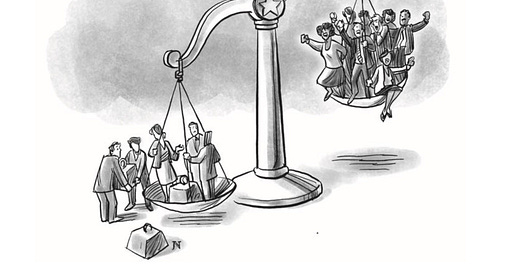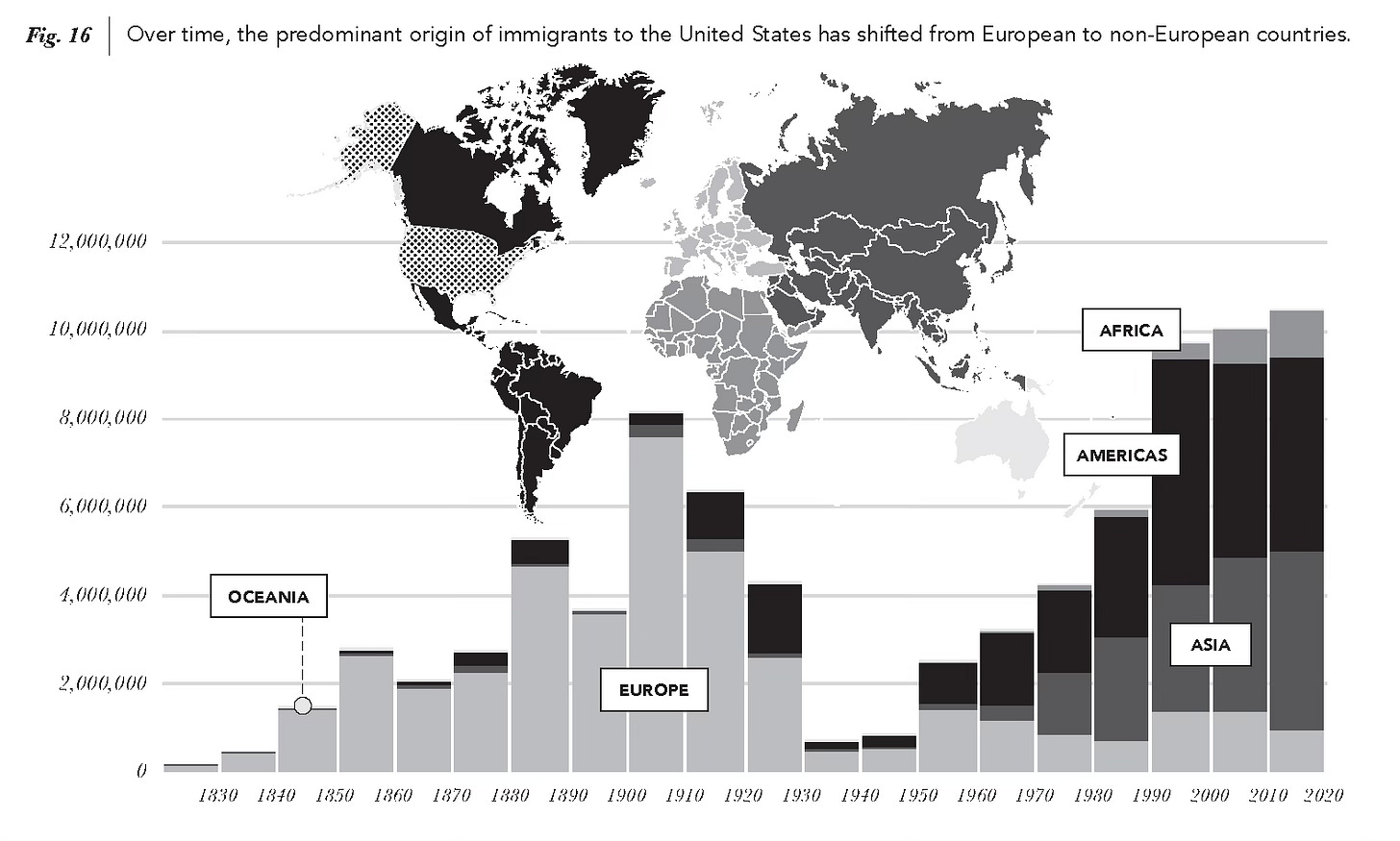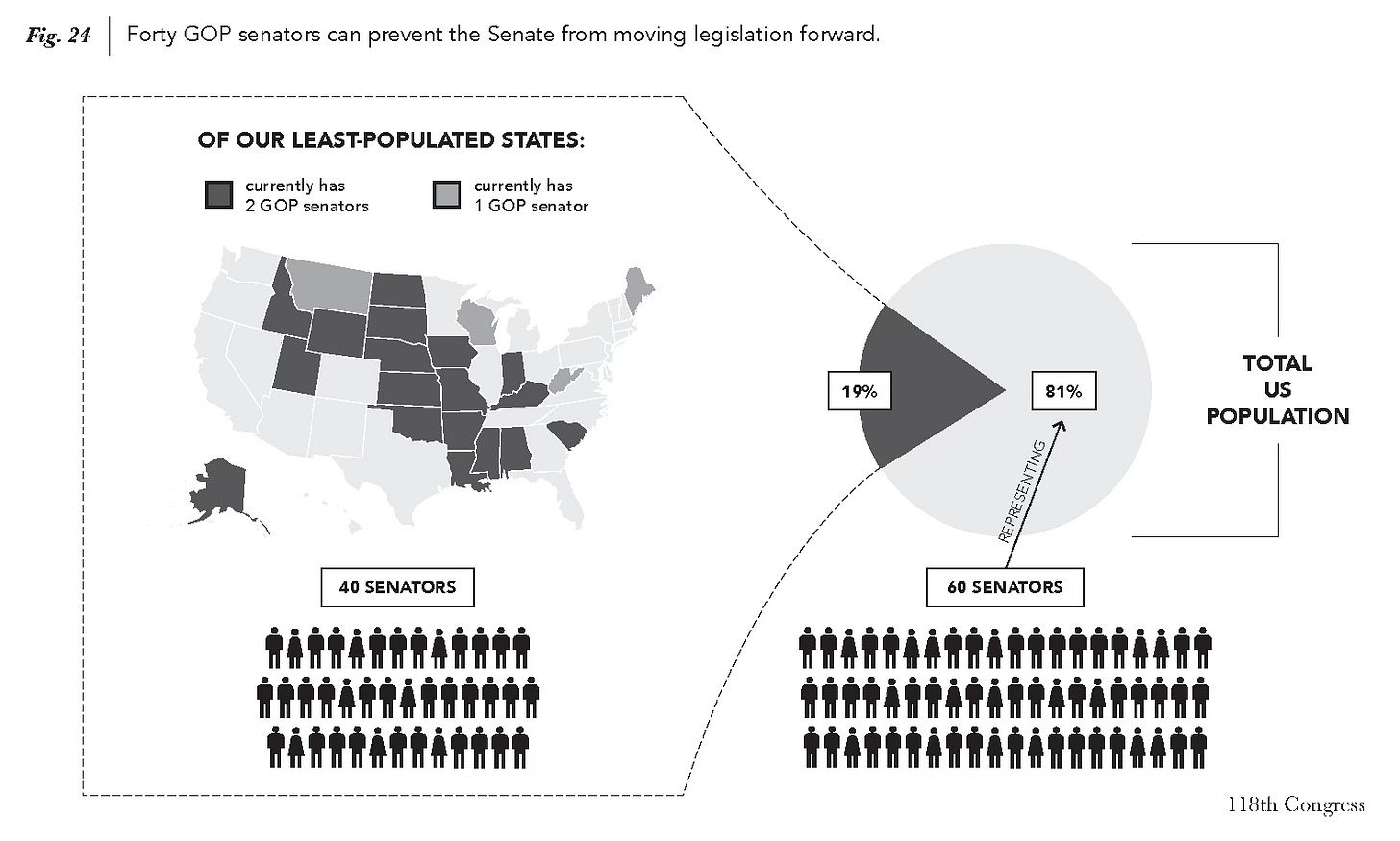As always with such posts, DO NOT read any ad hominem attacks into this analysis. To decode is to understand and empathize regarding where people are coming from. Until you can reach that level of understanding, there is no analysis.
There is no point in describing your political opponents as evil. If you want to promote better solutions, then understand where they’re coming from, as we are all products of our upbringing and life-journey.
I started using the phrase American Apartheid in my brief after the events in Charlottesville VA in August 2017 (Unite the Right protests and counterprotests). One of the most memorable places where I used it was in Coeur D’Alene Idaho at a financial conference in June 2019.
Yeah, Idaho.
Going into that talk I had little-to-no appreciation of the political vibe there, but I got a quick education.
First, there was the audible gasping followed pin-drop quiet when I made the points, near the end of my talk, about serious political violence becoming inevitable and that Trump wouldn’t leave office peacefully — no matter what.
Then an African American businessman came up to me after my talk and said that, while he appreciated my analysis, I shouldn’t spend any more time in town than absolutely necessary, as this was the wrong venue for that message — however valid we might both consider it.
I was admittedly clueless on the local vibe.
Flash forward to early 2023 and I’m contemplating how far I should go in America’s New Map with such concerns. Should I even use the phrase?
I left in the 44th thread because it was a counterpoint to the 43rd thread on “American Acceptionalism” — or our ability to successfully take in immigrants over the decades, allowing for a sort of permanent — if artificial — demographic divided to persist within our labor ranks.
Here’s the material I was worried about sounding too strident on:
America’s political polarization is a cautionary tale for globalization, for it arises by choice—the cherished ability of Americans to live where they want within our country. US journalist Bill Bishop famously described this self-segregation as the “Big Sort”—an internal migration where we Americans “seek our own kind in like-minded churches, like-minded neighborhoods, and like-minded sources of news and entertainment.”
The result is a concentration of political like-mindedness, as Blue cities, counties, and states grow bluer, while Red small towns, counties, and states grow redder. As Bishop noted, “People don’t need to check voting records to know the political flavor of a community. They can smell it.”
Expand that self-selection dynamic to a global scale and realize why national governments worry so over mass migrations and how they can concentrate like-minded citizens within nations, rebalancing national identities and often polarizing them. While this is misleadingly framed by anti-immigration forces along racial lines, what they really fear is the end of our way of life.
That’s the key bit here: our way of life.
That charge has been leveled numerous times across US history, starting with our revolution against British imperial rule. In the nineteenth century, the key “way of life” distinction was slavery, which sorted the Union into free and slave states—a powder-keg dynamic now dangerously replicated over reproductive rights. Across the twentieth century, mass urbanization and migration came to be viewed by many Americans as first threatening rural life, then small-town life, and finally the White “way of life” underpinning “real America.” Far from “replacing” anyone, the Big Sort rearranges everyone geographically—a very American dynamic in a civilization built on, and shaped by, migration.
Would we be on this divisive path if the great influx of immigrants over the past 30-35 years had come primarily from Europe? The same tensions with globalization and technology “stealing jobs” would still be there, but the existential angst would not, and it’s that existential angst that allows Trump 2.0 to flirt with all manner of economic autarky — a go-it-alone trade strategy sustained by the dream of Americans consuming ONLY American-made goods as a way to recapture our manufacturing dominance of the 1950s and 1960s — Trump’s idealized past/youth.
You know, that is getting us back to the America BEFORE all this cultural warfare that birthed DEI, which, in this ethno-nationalist mindset, represents an anti-White agenda that justifies a counter-Cultural Revolution of the sort we’re enduring now, where the wrong word on you website earns you instant cancellation by the Executive Branch (in a “victory against cancel culture,” of course).
By embracing Donald Trump’s ethno-nationalism, the GOP adopts an authoritarian ethos by ignoring, strong-arming, and destroying long-standing political norms …
The Right’s ethno-nationalism now openly embraces self-segregation as a godsend because of the electoral advantages it provides to a minority party that depends on the unequal representation found in the US Senate, where tiny Wyoming cancels the vote of a California sixty-seven times its size in population.
This is where I worried I would sound too alarmist in the book:
Nationhood is shared identity. When national identity is fractured and separated into opposing camps, that apartness congeals into an aparthood of unequal citizenship recalling apartheid South Africa. That regime’s laws banned mixed-race marriages, restricted Blacks’ access to unions and certain public spaces, and limited Blacks’ ability to travel or reside within the country—an institutionalized racism highly reminiscent of the American South’s lengthy Jim Crow era (1870s–1960s). During apartheid, South African Blacks essentially forfeited all their political rights whenever they stepped out of their designated homelands—a geo-locational form of restricted or partitioned citizenship.
In apartheid South Africa’s authoritarian regime, inequality before the law was based on race. In America today, that inequality—long institutionalized against people of color—finds renewed expression along identity lines (e.g., gender, sexual orientation, religiosity [or lack thereof], ideology), fostering sharp inequalities in voting rights, reproductive care, education, healthcare, law enforcement, incarceration rates, and so on.
Now toss in the overturning of Roe v. Wade:
Increasingly, our rights as Americans vary by geo-location, meaning rights we enjoy in one state disappear the second we cross over to another state—like abortion rights today. Now, right-wing extremists plot to tag red states’ citizens with legal restrictions designed to travel with them—ball-and-chain-like—whenever they step out of their designated home states. Replace bounty-hunting slavers with bounty-hunting forced-birthers and today we can say that Mrs. Dred Scott is alive and at risk if she is living in the wrong state.
Yielding the sort of legal uncertainty that China is actively trying to promote within its own population with its social credit scoring system:
As we citizens are trackable in real time, thanks to our smartphones, we are at risk of being subjected to overlapping, apartheid-enabling regulatory regimes that give lie to the notion that all stand equal before the law.
Americans live in an era of minority rule, when presidents can be unpopularly elected (2000, 2016) and state legislatures rigged for domination by the far smaller of the two parties’ bases. This structural imbalance reshaped the Supreme Court into a conservative supermajority despite GOP presidential candidates losing the popular vote in seven of the last eight national elections. With the Senate filibuster allowing forty members to torpedo any bill, GOP senators representing a mere 19 percent of the US electorate regularly wield that veto. During South Africa’s apartheid era, ruling Whites made up 19 percent of the population, demonstrating that such suppression of the popular will can be maintained for some time, providing you are willing to apply enough state-sponsored political violence to enforce order.
Comparing the US to Apartheid South Africa … crazy right? I mean, how could that mindset really penetrate our political system beyond the racial radicals portending the great White Genocide?
Enter Elon Musk with a personal background that, along with Peter Thiel’s, carries exactly such ideological baggage.
Both Thiel and Musk spent their early years in South Africa during the late apartheid era, when that system of institutionalized racial segregation and discrimination was coming apart at the seams, triggering all manner of White Genocide-like fears. Thiel attended a private, Whites-only prep school, while Musk grew up in a wealthy White family that benefited from the apartheid system.
Relevant?
Are there two more influential Tech Bros in the MAGA ranks right now than Musk and Thiel?
Hard to argue that anyone is bigger right now.
Do they tend to view policies aimed at addressing racial inequalities as potentially discriminatory against Whites, echoing apartheid-era narratives?
Yes, yes they do.
Has that mindset permeated Trump 2.0?
Given our sudden breakdown in relations with South Africa, I would have to say yes.
Musk goes after the current government there on X, spreading the image of systemtic Black-on-White repression and violence.
Out of seeming nowhere (who had this on their bingo card?), Trump issues an executive order specifically to shut down all US foreign aid to South Africa. The reason why?
President Trump on Friday ordered that all foreign assistance to South Africa be halted and said his administration would prioritize the resettling of white, “Afrikaner refugees” into the United States because of what he called actions by the country’s government that “racially disfavored landowners.”
In the order, Mr. Trump said that “the United States shall not provide aid or assistance to South Africa” and that American officials should do everything possible to help “Afrikaners in South Africa who are victims of unjust racial discrimination.”
It follows Mr. Trump’s accusation on his social media site on Sunday that the South African government was engaged in a “massive Human Rights VIOLATION, at a minimum.”
All of a sudden, South Africa’s ambassador to the US is persona non grate for speaking out on Trump (quite the diplomatic message) and America is opening up to “Afrikaner refugees”!?!
NYT: Trump Administration Expels South Africa’s Ambassador to the U.S.; Secretary of State Marco Rubio had lashed out on social media over comments critical of President Trump that the ambassador had made to a think tank in Johannesburg.
Again, wow.
Putin … back in America’s good graces and South Africa’s ambassador expelled.
Message received: ethno-Christian-nationalist authoritarian regimes good; anything suggestive of DEI now evil.
Keep reading with a 7-day free trial
Subscribe to Thomas P.M. Barnett’s Global Throughlines to keep reading this post and get 7 days of free access to the full post archives.






